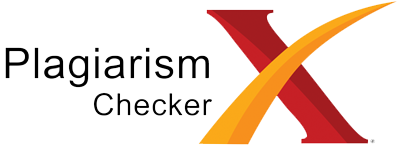A Preliminary Study: Applying Problem-Posing Learning Models on Algorithm and Flowchart Materials in Basic Programming Class
Abstract
Abstract: We propose the applying of the problem-posing learning model to find out the activities and student learning outcomes in learning algorithm and flowchart material in the basic programming class. This research is a preliminary study that will be used to develop applications/systems/interactive media/games that will support the operation of the problem-posing learning model automatically in the upcoming basic programming class. The classroom action research method was used with the implementation of two cycles involving 38 students in the first semester of vocational high school. The process of applying the problem-posing learning model uses the pre-solution posing type, which requires that each student make a question of the situation that is held, where students are expected to be able to make questions related to questions previously made by the teacher, then exchange the questions to other students to solve them. The flow of making and solving questions is that students make the main case which then completes it in the form of algorithmic answers and also a flowchart assisted by the Raptor application. By applying the problem-posing learning model, it can be concluded that in cycle 1 and cycle 2 the achievement of learning activities and outcomes tends to be good. The success of this research can provide perspective and guidance for developing basic programming applications/systems/interactive media/games that will instill the problem-posing learning model in the interaction flow and can introduce students early on the problem-posing process.
Keywords
Full Text:
PDFReferences
Arifin, Z. (2014). Evaluasi Pembelajaran. Bandung: PT. Remaja Rosdakarya.
Arikunto, S. (2014). Prosedur Penelitian Suatu Pendekatan Praktik. Jakarta: PT. Rineka Cipta.
Aryani. (2018). Multimedia Pembelajaran untuk Algoritma dan Pemrograman menggunakan Model Pembelajaran Problem-Posing untuk Menunjang Critical Thinking. Bandung: Skripsi Universitas Pendidikan Indonesia.
Daungcharone, K., Panjaburee, P., & Thongkoo, K. (2017). Using Digital Game as Compiler to Motivate C Programming Language Learning in Higher Education. IEEE IIAI-AAI, (pp. 533–538).
Debabi, W., & Champagnat, R. (2017). Towards Architecture for Pedagogical and Game Scenarios Adaptation in Serious Games. International Conference E-Learning, (pp. 63–70).
Depdiknas. (2004). Penelitian Pembelajaran Pengetahuan Sosial. Depdiknas Derjen Dikdasnas.Dit PLP Materi Pelatihan Terintergrasi Buku 2. Jakarta: DEPDIKNAS.
Dwinanto, A. (2017). Pengembangan dan Analisis Kualitas Game Edukasi Menggunakan Metode Pembelajaran Kooperatif Tipe TGT pada Materi Pemrograman Dasar Siswa SMK Kelas X. Yogyakarta: Thesis of UNY.
Fatoni, I. M., Irianto, W. S. G., & Prasetya, D. D. (2013). Penerapan Metode Pembelajaran Problem-Posing dalam Metode Pembelajaran Think-Pair-Square (PP-TPS) untuk Meningkatkan Keaktifan Siswa dan Hasil Belajar Siswa pada Mata Pelajaran Desain WEB di Kelas X TKJ SMK Muhammadiyah 1 Mojokerto. Malang: Skripsi Pendidikan Teknik Informatika Universitas Negeri Malang.
Hirashima, T., Yokoyama, T., Okamoto, M., & Takeuchi, A. (2008). An Experimental Use of Learning Environment for Problem-Posing as Sentence-Integration in Arithmetical Word Problems. International Conference on Intelligent Tutoring Systems, (pp. 687-689).
Hong, T. & Chu, HC. (2017). Effects of a Situated 3D Computational Problem-Solving and Programming Game-Based Learning Model on Students’ Learning Perception and Cognitive Loads. IEEE IIAI-AAI, (pp. 596–600).
Hopkins, D. (2008). The 4th Edition – A Teacher’s Guide to Classroom Research. England: Open University Press and McGraw-Hill Education.
Hsu, W. C., & Lin, H. C. K. (2017). Impact of Applying WebGL Technology to Develop a Web Digital Game-Based Learning System for Computer Programming Course in Flipped Classroom. EITT, (pp. 64–69).
KEMDIKBUD RI. (2018). Struktur Kurikulum SMK Perdirjen Nomor 07 Tahun 2018. Jakarta: Kementerian Pendidikan dan Kebudayaan Republik Indonesia, Direktorat Jenderal Pendidikan Dasar dan Menengah.
Kiss, G., & Arki, Z. (2017). The influence of game-based programming education on the algorithmic thinking. Procedia - Social and Behavioral Sciences, June 2016, (pp. 613–617).
Kunandar. (2013). Penilaian Autentik (Penilaian Hasil Belajar Peserta Didik Berdasarkan Kurikulum 2013) Suatu Pendekatan Praktis Disertai dengan Contoh. Jakarta: PT. RajaGrafindo Persada.
Kunimune, H., & Niimura, M. (2014). Preliminary Evaluation of a Problem-Posing Method in Programming Classes. Procedia Computer Science, (pp. 794–802).
Kunkle, W. M. & Allen, R. B. (2016). The Impact of Different Teaching Approaches and Languages on Student Learning of Introductory Programming Concepts. ProQuest Dissertations and Theses.
Likmalatri, L. (2018). Pemrograman Dasar untuk SMK/MAK Kelas X Semester 1 dan 2 Bidang Keahlian Teknologi Informasi dan Komunikasi. Surakarta: Putra Nugraha.
Malliarakis, C., Satratzemi, M., & Xinogalos, S. (2014). Designing educational games for computer programming: A holistic framework. Electronic Journal of E-Learning, 12(3), 281–298.
Mulyasa. (2013). Pengembangan dan Implementasi Kurikulum 2013. Bandung: PT Remaja Rosdakarya.
Purnamawati, Nur, H., & Nuridayanti. (2017). Application Of Problem-Posing Learning Model On Electrical Engineering Subject in SMK 2 Makassar, International Conference ADRI-5, (pp. 4-11).
Riduwan & Akdon (2013). Rumus dan Data Dalam Analisis Statistika. Bandung: Alfabeta.
Rozali, N. F. & Zaid, N. M. (2017). Code Puzzle : ActionScript 2.0 Learning Application Based on Problem Based Learning Approach, IEEE ICT ISPC, (pp. 2–5).
Sardiman, A. M. (2014). Interaksi dan Motivasi Belajar Mengajar. Jakarta: PT. RajaGrafindo Persada.
Silver, E. A. (1994). On mathematical problem-posing. For the Learning of Mathematics. JSTOR Journal, 14(1), 19-28.
Silver, E. A., & Cai, J. (1996). An Analysis of Arithmetic Problem-posing by Middle School Students. Journal of Research in Mathematic Education, 27(5), 521-539.
Soloway, E., & Spohrer, J. (1989). Studying the novice programmer in 1st ed. Hillsdale: L. Erlbaum.
Stigall, J., Sharma, S., & Member, S. (2017). Virtual Reality Instructional Modules for Introductory Programming Courses. IEEE ISEC, (pp. 34-42).
Supianto, A. A., & Hafis, M. (2018). GTRAS : Graphical Tracking Activity System for Problem-Posing Learning Process Insights. ICACSIS, (pp. 231–235).
Supianto, A. A., Hayashi Y., & Hirashima, T. (2017). Designing Scaffolding System in a Problem-Posing Learning Environment. ICSITech, (pp. 546–551).
Supianto, A. A., Hayashi, Y., & Hirashima, T. (2016). Analysis of Steps in Posing Arithmetic Word Problem as Sentence-Integration on Interactive Learning Environment. ICCE, 1(11), (pp. 242–251).
Suryosubroto. (2009). Proses Belajar Mengajar di Sekolah Wawasan Baru, Beberapa Metode Pendukung, dan Beberapa Komponen Layanan Khusus. Jakarta: Rineka Cipta.
Suyitno, A. (2004). Dasar-Dasar dan Proses Pembelajaran Matematika I. Semarang: Universitas Negeri Semarang.
Syahidi, A. A., Asyikin, A. N., & Asy’ari. (2018). Applying Student Team Achievement Divisions (STAD) Model on Material of Basic Programme Branch Control Structure to Increase Activity and Student Result. ICVEE - IOP Conference Series: Materials Science and Engineering, 336(1), (pp. 1-8).
Topalli, D., & Cagiltay, N. E. (2018). Improving Programming Skills in Engineering Education through Problem-Based Game Projects with Scratch. Computers and Education, (pp. 64–74).
Winarno. (2013). Pembelajaran Pendidikan Kewarganegaraan. Jakarta: Bumi Aksara.
Yang, T.-C., Hwang, G.-J., Yang, S. J. H., & Hwang, G.-H. (2015). A Two-Tier Test-based Approach to Improving Students’ Computer-Programming Skills in a Web-Based Learning Environment. Journal of Educational Technology & Society, 18 (November), 198–210.
DOI: http://dx.doi.org/10.17977/um038v3i22020p109
Refbacks
- There are currently no refbacks.
Copyright (c) 2020 Aulia Akhrian Syahidi, Herman Tolle, Ahmad Afif Supianto, Tsukasa Hirashima

This work is licensed under a Creative Commons Attribution-ShareAlike 4.0 International License.
JKTP: Jurnal Kajian Teknologi Pendidikan published by Department of Educational Technology, Faculty of Education, State University of Malang in Collaboration with Asosiasi Program Studi Teknologi Pendidikan Indonesia (APS TPI).
Publisher Address:
Lab. Teknologi Pendidikan, Gd.E2, Lt.1
Fakultas Ilmu Pendidikan Universitas Negeri Malang
Jl. Semarang 5, Kota Malang Email: jktp.fip@um.ac.id
========================================================================================================
| INDEXED BY | TOOLS | PLAGIARISM CHECK | ARTICLE TEMPLATE |
|
|

JKTP: Jurnal Kajian Teknologi Pendidikan is licensed under a Creative Commons Attribution-ShareAlike 4.0 International License.
JKTP Statistics (Since July 13th, 2020)





.png)












